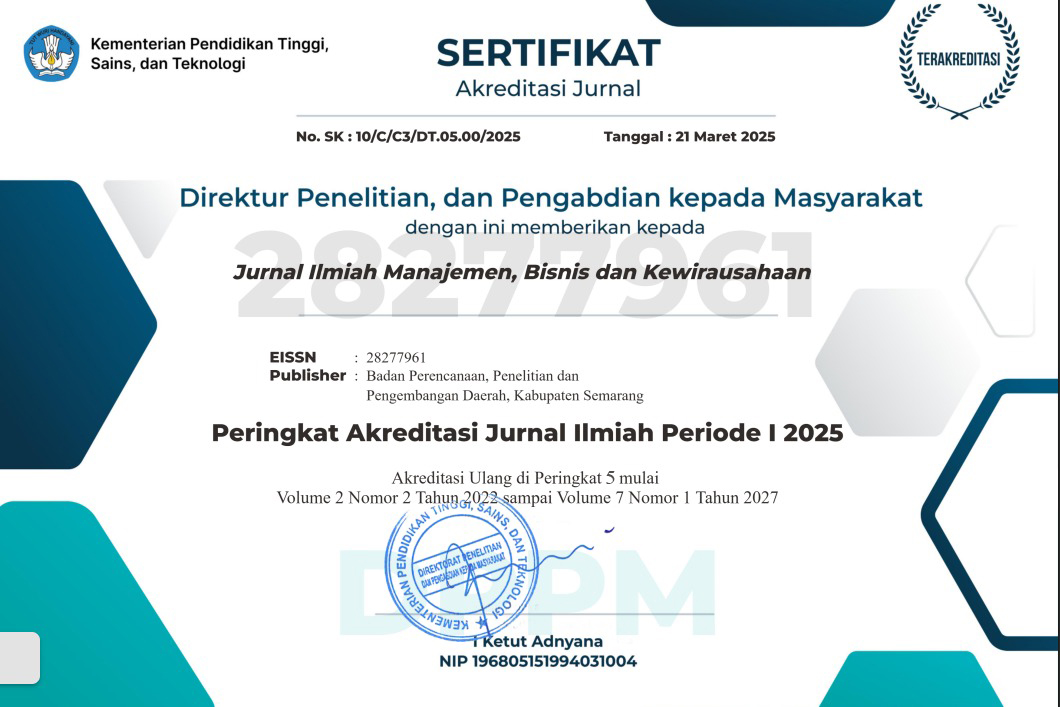Pengaruh Budaya Terhadap Sifat Altruistik Konsumen Indonesia
DOI:
https://doi.org/10.55606/jurimbik.v5i3.1652Keywords:
altruistic, consumer behaviour, collectivism, culture, religiosityAbstract
This study explores altruistic consumer behavior in Indonesia from a cultural perspective, emphasizing how collectivist values, religiosity, and social norms shape prosocial consumption. Using a narrative literature review, the research synthesizes theoretical and empirical findings from national and international journals to explain the interaction between traditional cultural values and modern consumer behavior. The results indicate that Indonesia’s collectivist culture (gotong royong or mutual cooperation, solidarity, and social responsibility) significantly fosters altruistic tendencies among consumers. Furthermore, religiosity acts as a moral and spiritual motivator that extends altruism into everyday consumption practices, including donations and ethical purchasing. The rise of digital platforms also enables the transformation of traditional solidarity into digital philanthropy and online social campaigns. Overall, altruistic consumer behavior in Indonesia emerges as a dynamic interplay between traditional culture, religious ethics, and modern technological adaptation.
References
Agustiningsih, M. D., Savitrah, R. M., & Lestari, P. C. A. (2021). Indonesian young consumers’ intention to donate using sharia fintech. Asian Journal of Islamic Management, 3(1), 34-44. https://doi.org/10.20885/ajim.vol3.iss1.art4
Ajzen, I. (1991). The theory of planned behavior. Organizational Behavior and Human Decision Processes, 50(2), 179–211. https://doi.org/10.1016/0749-5978(91)90020-T
Andreoni, J. (1990). Impure altruism and donations to public goods: A theory of warm-glow giving. The Economic Journal, 100(401), 464–477. https://doi.org/10.2307/2234133
Anggraini, P. D. A., & Ridanasti, E. (2023). Green impact: Exploring the motivations behind sustainable fashion shopping and consumption toward green apparel in Indonesia. Journal of Economic, Business and Accounting (COSTING), 7(5). https://doi.org/10.31539/costing.v7i5.10689
Batson, C. D. (1991). The altruism question: Toward a social-psychological answer. Hillsdale, NJ: Erlbaum.
Braun, V., & Clarke, V. (2006). Using thematic analysis in psychology. Qualitative Research in Psychology, 3(2), 77-101.
Bray, J., Johns, N., & Kilburn, D. (2011). An exploratory study into the factors impeding ethical consumption. Journal of Business Ethics, 98(4), 597–608. https://doi.org/10.1007/s10551-010-0640-9
Faedlulloh, D., Meutia, I., Yulianti, R., & Karmilasari, V. (2021). Digital mutual cooperation: The transformation of gotong royong during the COVID-19 pandemic in Indonesia. Jurnal Ilmu Sosial dan Ilmu Politik, 25(1), 45-62.
Furinto, A., Pawitra, T., & Balqiah, T. E. (2020). The impact of cultural values on the effectiveness of social marketing campaigns in Indonesia. Jurnal Manajemen Pemasaran, 15(1), 1-15.
Green, B. N., Johnson, C. D., & Adams, A. (2006). Writing narrative literature reviews for peer-reviewed journals: Secrets of the trade. Journal of Chiropractic Medicine, 5(3), 101-117.
Haryanto, T. (2023). Trust in digital platforms and normative messages in disaster fundraising campaigns in Indonesia. Jurnal Komunikasi Indonesia, 12(2), 89-104.
Hendar, H., & Mulyana, A. (2019). The role of reference groups and religious values on purchase decisions of halal products in Indonesia. Asian Journal of Islamic Management, 1(2), 85-96.
Hidayatullah, S. (2023). Digital zakat: The role of religiosity in adoption of digital payment platforms for religious donations in Indonesia. Journal of Islamic Monetary Economics and Finance, 9(1), 115-132.
Hofstede, G. (2001). Culture's consequences: Comparing values, behaviors, institutions, and organizations across nations (2nd ed.). Sage Publications.
Karsam, K., Erfiansyah, E., Pratiwi, I. R., & Hendriyana, H. (2022). “Mutual assistance” culture to maintain corporate sustainability. Journal of Accounting and Investment, 23(3). https://doi.org/10.18196/jai.v23i3.13859
Mohr, L. A., Webb, D. J., & Harris, K. E. (2001). Do consumers expect companies to be socially responsible? The impact of corporate social responsibility on buying behavior. Journal of Consumer Affairs, 35(1), 45–72. https://doi.org/10.1111/j.1745-6606.2001.tb00102.x
Nurzaman, M. S., & Herdiani, E. (2023). Intentions to consume sustainable fashion products in Indonesia: Does religiosity affect? Etikonomi, 22(2), 277-292. https://doi.org/10.15408/etik.v22i2.34281
Penner, L. A., Dovidio, J. F., Piliavin, J. A., & Schroeder, D. A. (2005). Prosocial behavior: Multilevel perspectives. Annual Review of Psychology, 56, 365–392. https://doi.org/10.1146/annurev.psych.56.091103.070141
Purwatiningsih, A. P., Rahmadieni, R. Y., & Setyawati, H. A. (2021). Do gender, financial income, and religiosity influence Indonesian’s donations? International Journal Ihya’ Ulum al-Din, 25(1). https://doi.org/10.21580/ihya.25.1.15286
Putri, D. A., & Jatnika, D. (2023). Digital social obligation: An analysis of donation behavior in Indonesian crowdfunding communities. Jurnal Sosiologi Dialektika, 18(1), 78-95.
Sari, M. (2024). Mental health campaigns on Instagram: Digital literacy and youth participation in social fundraising in Indonesia. Journal of Digital Media and Communication, 5(1), 34-52.
Sekarini, S., Wibowo, A., & Yunas, N. (2023). Digitalizing gotong royong: How Gen Z in urban Indonesia adapts traditional collective values for social actions. Journal of Youth Studies, 26(2), 201-218.
Septiani, R., & Muljono, T. (2021). The influence of collectivism and environmental concern on green purchase intention in Indonesia. Journal of Consumer Sciences, 6(2), 120-135.
Suwana, F. (2021). Influencer fundraising: The role of social media influencers in mobilizing donations for social causes in Indonesia. Journal of Social Media Studies, 8(2), 145-162.
Tajfel, H., & Turner, J. C. (1979). An integrative theory of intergroup conflict. In W. G. Austin & S. Worchel (Eds.), The social psychology of intergroup relations (pp. 33–47). Monterey, CA: Brooks/Cole.
Triandis, H. C. (1995). Individualism and collectivism. Boulder, CO: Westview Press.
Wijaya, B. S. (2018). The "pamer" culture and brand consciousness among young Indonesian urban consumers. Gadjah Mada International Journal of Business, 20(3), 287-310.
Young, W., Hwang, K., McDonald, S., & Oates, C. J. (2010). Sustainable consumption: Green consumer behaviour when purchasing products. Sustainable Development, 18(1), 20–31. https://doi.org/10.1002/sd.394
Downloads
Published
How to Cite
Issue
Section
License
Copyright (c) 2025 Jurnal Ilmiah Manajemen, Bisnis dan Kewirausahaan

This work is licensed under a Creative Commons Attribution-ShareAlike 4.0 International License.










